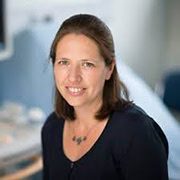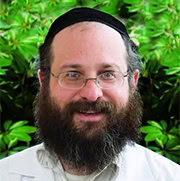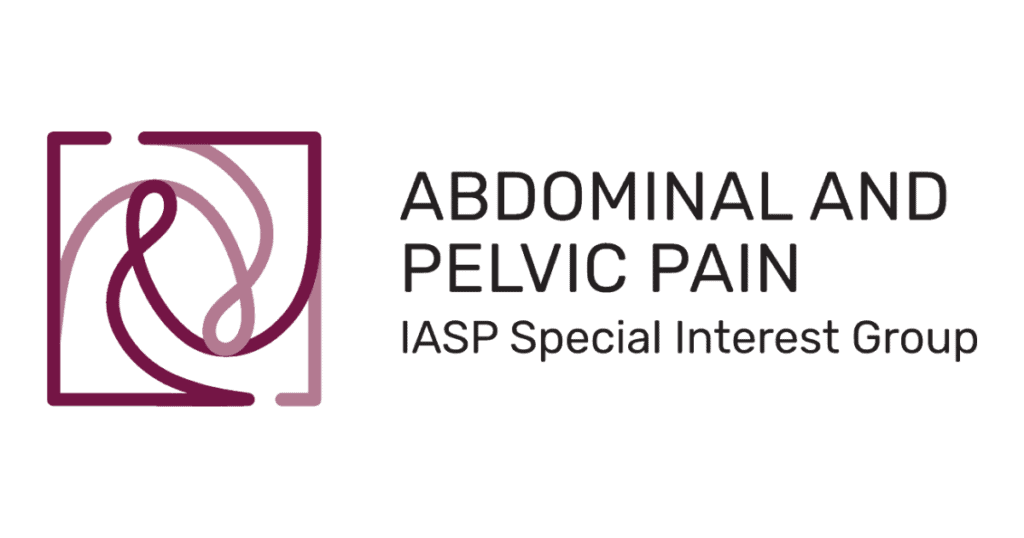Date: Tuesday, January 21, 4:00 p.m. to 5:30 p.m., Eastern (US) Time
This webinar is being produced by the International Association for the Study of Pain’s Abdominal and Pelvic Pain Special Interest Group. The Abdominal and Pelvic Pain SIG aims to:
- Provide a forum for members to discuss the diagnosis and management of pain perceived in the abdominal and pelvic areas.
- Promote a multidisciplinary approach to patients with abdominal and pelvic pain, including the development of global guidelines in which pain, its associated distress, physical disability, and associated disorders are the central subject, independent of the medical specialties (e.g., urology, gynecology, and gastroenterology).
- Disseminate up-to-date abdominal and pelvic pain knowledge by setting up educational programs for patients and caregivers.
- Implement modern systems (e.g., web-based maps) to propagate the guidelines for daily use in patient care.
- Support and develop educational initiatives (including meetings) to disseminate the issues around these types of pain to a broader audience.
Join us for an insightful discussion offering advice on obtaining meaningful data, publishing impactful papers, securing research funding, and advancing your career trajectory. This session will have a particular focus on challenges and opportunities for visceral pain researchers, while also addressing broader topics relevant to pain researchers across disciplines. The mentors will share guidance tailored to basic, translational, and clinical research, enriched by their own experiences and professional journeys. Ample Q&A time will be provided for trainees and mentors seeking to enhance their research and career development paths.
Participants include:
- Daniel J. Clauw, MD – University of Michigan, USA
- Michael Gold, PhD – University of Pittsburgh, USA
- Katy Vincent, MRCOG, DPhil – University of Oxford, UK
- Kevin Hellman, PhD – Endeavor Health & Pritzker School of Medicine, Chicago, USA (moderator)
About the Presenters
 Daniel J. Clauw, MD is a Professor of Anesthesiology, Medicine (Rheumatology) and Psychiatry at the University of Michigan. He serves as Director of the Chronic Pain and Fatigue Research Center. Until January 2009, he also served as the first Associate Dean for Clinical and Translational Research within the University of Michigan Medical School, and PI of the UM Clinical and Translational Sciences Award (CTSA). He attended the University of Michigan for both undergraduate and medical school studies and then completed his Internal Medicine residency and Rheumatology Fellowship at Georgetown University. He joined the faculty at Georgetown University in 1990, and while there, founded the Georgetown Chronic Pain and Fatigue Research Center, and served as the Division Chief of Rheumatology, Immunology and Allergy, and Vice Chair of the Department of Medicine. Since moving to UM in 2001, Dr. Clauw has continued his commitment to the clinical care and research into overlapping conditions such as Fibromyalgia, Gulf War Illnesses, and Interstitial Cystitis just to name a few, and has become an internationally known expert in chronic pain, especially how the central nervous system contributions to chronic pain states. He is also performing ongoing work in conditions such as low back pain, osteoarthritis, vulvodynia, endometriosis, irritable bowel syndrome, and temporomandibular joint disorder.
Daniel J. Clauw, MD is a Professor of Anesthesiology, Medicine (Rheumatology) and Psychiatry at the University of Michigan. He serves as Director of the Chronic Pain and Fatigue Research Center. Until January 2009, he also served as the first Associate Dean for Clinical and Translational Research within the University of Michigan Medical School, and PI of the UM Clinical and Translational Sciences Award (CTSA). He attended the University of Michigan for both undergraduate and medical school studies and then completed his Internal Medicine residency and Rheumatology Fellowship at Georgetown University. He joined the faculty at Georgetown University in 1990, and while there, founded the Georgetown Chronic Pain and Fatigue Research Center, and served as the Division Chief of Rheumatology, Immunology and Allergy, and Vice Chair of the Department of Medicine. Since moving to UM in 2001, Dr. Clauw has continued his commitment to the clinical care and research into overlapping conditions such as Fibromyalgia, Gulf War Illnesses, and Interstitial Cystitis just to name a few, and has become an internationally known expert in chronic pain, especially how the central nervous system contributions to chronic pain states. He is also performing ongoing work in conditions such as low back pain, osteoarthritis, vulvodynia, endometriosis, irritable bowel syndrome, and temporomandibular joint disorder.
 Michael Gold, PhD, is a professor of neurobiology at the University of Pittsburgh, US. Dr. Gold received his BA from UC Berkeley, PhD from UCLA, and was a postdoctoral fellow with Jon Levine at UCSF. For the last 20 years, Gold’s research focused on the neurobiology of pain. He has made important contributions to understanding injury-induced plasticity in nociceptive afferents and their contribution to the manifestation of persistent pain. Toward this end, he has employed an array of approaches ranging from the study of isolated cells to the development of novel behavioral assays with which to assess the presence of persistent hypersensitivity, and more recently the study of clinical populations suffering from persistent pain. Dr. Gold is currently the International Association for the Study of Pain’s Treasurer.
Michael Gold, PhD, is a professor of neurobiology at the University of Pittsburgh, US. Dr. Gold received his BA from UC Berkeley, PhD from UCLA, and was a postdoctoral fellow with Jon Levine at UCSF. For the last 20 years, Gold’s research focused on the neurobiology of pain. He has made important contributions to understanding injury-induced plasticity in nociceptive afferents and their contribution to the manifestation of persistent pain. Toward this end, he has employed an array of approaches ranging from the study of isolated cells to the development of novel behavioral assays with which to assess the presence of persistent hypersensitivity, and more recently the study of clinical populations suffering from persistent pain. Dr. Gold is currently the International Association for the Study of Pain’s Treasurer.
 Katy Vincent, MRCOG, DPhil, is a professor of gynaecological pain and the senior fellow in Pain In Women in the Nuffield Department of Women’s and Reproductive Health, University of Oxford, UK, and a consultant gynecologist at the John Radcliffe Hospital, Oxford. She studied medicine at King’s College London, and completed postgraduate training in obstetrics and gynecology in 2015. She undertook a DPhil with Professor Irene Tracey investigating hormonal influences on the pain experience, and has subsequently continued her academic and clinical work in parallel. Katy’s predominant clinical interest is chronic pelvic pain, particularly in association with endometriosis and in teenagers/younger women. She leads the Pain in Women research group, using a variety of methodologies to explore mechanisms generating and maintaining pain in women. Katy is the academic lead of the IMI-2-funded TRiPP project investigating pain pathways in endometriosis and bladder pain syndrome. She is the chair of the IASP SIG on Abdominal and Pelvic Pain.
Katy Vincent, MRCOG, DPhil, is a professor of gynaecological pain and the senior fellow in Pain In Women in the Nuffield Department of Women’s and Reproductive Health, University of Oxford, UK, and a consultant gynecologist at the John Radcliffe Hospital, Oxford. She studied medicine at King’s College London, and completed postgraduate training in obstetrics and gynecology in 2015. She undertook a DPhil with Professor Irene Tracey investigating hormonal influences on the pain experience, and has subsequently continued her academic and clinical work in parallel. Katy’s predominant clinical interest is chronic pelvic pain, particularly in association with endometriosis and in teenagers/younger women. She leads the Pain in Women research group, using a variety of methodologies to explore mechanisms generating and maintaining pain in women. Katy is the academic lead of the IMI-2-funded TRiPP project investigating pain pathways in endometriosis and bladder pain syndrome. She is the chair of the IASP SIG on Abdominal and Pelvic Pain.
About the Moderator
 Kevin Hellman, PhD, joined NorthShore University HealthSystem and created the Gynecological Research Laboratory (GyRL). His expertise in basic pain research, computational analytical methods, paradigms for studying spontaneous pain, and the science of electrophysiology was essential for the development of robust assessment of the physiological bases for pelvic pain. The innovation of his work requires clinical phenotyping to complement his research methodology and statistical modeling, This combination has been essential to discovering novel insights into female pelvic pain. He is also the principal investigator of an NIH-funded grant that studies the physiology and treatment of women’s health conditions. His laboratory has developed new animal models, investigated novel diagnostic methods, and conducted treatment studies, with an end goal to systematically define the pathophysiology of dysmenorrhea and develop new treatments, while training a cadre of future investigators to revolutionize the study of visceral pain.
Kevin Hellman, PhD, joined NorthShore University HealthSystem and created the Gynecological Research Laboratory (GyRL). His expertise in basic pain research, computational analytical methods, paradigms for studying spontaneous pain, and the science of electrophysiology was essential for the development of robust assessment of the physiological bases for pelvic pain. The innovation of his work requires clinical phenotyping to complement his research methodology and statistical modeling, This combination has been essential to discovering novel insights into female pelvic pain. He is also the principal investigator of an NIH-funded grant that studies the physiology and treatment of women’s health conditions. His laboratory has developed new animal models, investigated novel diagnostic methods, and conducted treatment studies, with an end goal to systematically define the pathophysiology of dysmenorrhea and develop new treatments, while training a cadre of future investigators to revolutionize the study of visceral pain.


